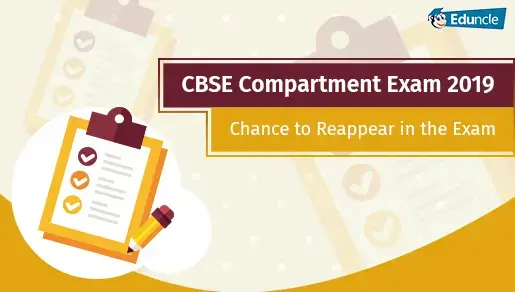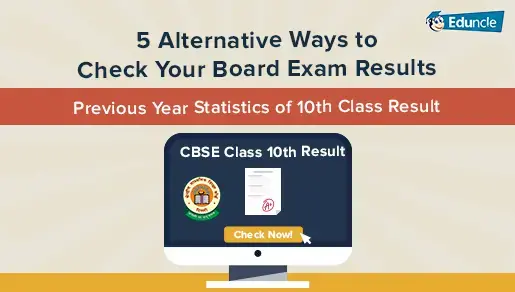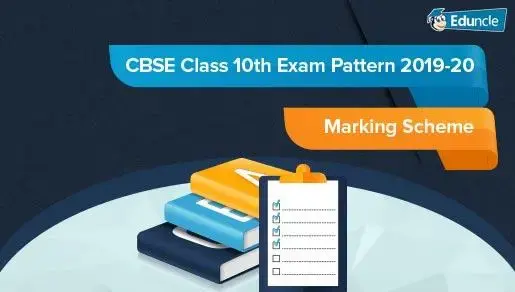
Are you going to appear for the CBSE Class 12 Commerce Board Exams this year? If yes, you might be getting more conscious about your preparations and score goals as the exams come closer.
It is obvious to get nervous when only a few days or months are remaining for the exam. But if your preparations and determination are strong, you’d be able to overcome this.
Getting a thorough knowledge about the CBSE Class 12 Commerce Syllabus would also work as an icing on the cake for your exam preparations. So, here in this blog, we would provide you the detailed list of the topics that come under the CBSE Syllabus for Class 12 Commerce 2019-20.
You would also get the list of important topics/units along with their marking weightage in the blog below.
CBSE Subjects for Class 12 Commerce Stream [Optional + Compulsory]
It is essential to have a knowledge about the necessary subjects of Commerce like Accountancy, Business Studies, Economics, English and Informatics Practices. Whereas you can also choose other optional subjects from the given list.
Mathematics
Physical Education
Computer Science
Legal Studies
Entrepreneurship
Hindi
English
Other Languages
We tried to cover all the relevant subjects related to the Commerce field, if we missed any important subjects, then please help us in editing. The suggestions are most welcomed in the comments’ box below.
Now, let’s check out the detailed CBSE 12 Syllabus for all the major subjects of commerce.
Please click on the given links to get the CBSE Class 12 Commerce Syllabus and curriculum of the desired subject you are searching for -
CBSE Class 12 Accountancy Syllabus
CBSE Class 12 Business Studies Syllabus
CBSE Class 12 Economics Syllabus
CBSE Class 12 Informatics Practice Syllabus
English Syllabus for CBSE Class 12
Class 12 Commerce CBSE Syllabus for Optional Subjects
CBSE Syllabus for Class 12 Accountancy 2019-20
Accountancy (Code 055) is the most imperative subject to start your career in Commerce Field. Whether you want to start your own Business or aspire to make career in Bank, Finance Fields or as a Chartered Accountant, if you have interest in Accountancy Subject, you can easily make your career goals fulfilled by choosing this stream.
Check out CBSE Class 12 Accountancy Chapter Wise Weightage and Syllabus of Accounts Class 12 2019-20
CBSE Class 12 Accountancy Chapter Wise Weightage
You must try to attempt all the questions in CBSE Question Papers to score a good percentage in Board Exams. And to hit the bull’s eye, it’s very essential to know about the Important topics and Chapter wise weightage so that you can set your target score at first.
| Units | Unit Names | Marking Weightage |
| Part - A | Accounting for Not-for-Profit Organizations, Partnership Firms and Companies | 60 Marks |
| Unit- 1 | Finacial Statements of Not-for-Profit Organizations | 10 |
| Unit- 2 | Accounting for Partnership Firms | 30 Marks |
| Unit- 3 | Accounting for Companies | 20 Marks |
| Part- B | Financial Statement Analysis | 20 Marks |
| Unit- 4 | Analysis of Financial Statements | 12 Marks |
| Unit- 5 | Cash Flow Statements | 8 Marks |
| Part - C | Project Work | 20 Marks |
| Project File | 4 Marks | |
| Practical Exam (Written) | 12 Marks (1 Hour) | |
| Viva Voice | 4 Marks | |
| Or | ||
| Part - B | Computerised Accounting | 20 Marks |
| Part - C | Practical Work | 20 Marks |
| Practical File | 4 Marks | |
| Practical Examination | 12 Marks (1 Hour) | |
| Viva Voice | 4 Marks | |
List of Important Topics for Class 12 Accountancy Subject
Check out the complete list of Important topics in Accountancy Subject from here -
Part- A: Accounting for Partnership Firms and Companies
Unit 1 - Accounting for Partnership Firms.
Partnership
Reconstitution: Admission of a Partner
Goodwill
Change in Profit Sharing Ratio
Retirement and Death of a Partner
Dissolution of a Partnership Firm
Unit 2 - Accounting for Companies
Accounting for Share Capital
Accounting for Debentures
Redemption of debentures
Conversion Method
Part - B: Financial Statement Analysis
Unit 3 - Analysis of Financial Statements
Financial Statement of a company
Income and Position statements
Comparative Statement
Common size Statement
Financial Statement Analysis
Accounting Ratios
Tools for Financial Statement Analysis
Liquidity Ratios
Solvency Ratios
Active Ratios
Probability Ratios
Unit 4 - Cash Flow Statement.
Introduction Classification and Statements.
Important Adjustments.
CBSE Class 12 Business Studies Syllabus 2019-20
Business Studies (Code 054) is the second most important subject in commerce field that helps to provide you an analytical and critical thinking towards the Market.
Every Student has to encounter the world of business in their lives at some point. For students seeking their career in management, National and International Market, IT sector or Entrepreneurship Business Studies is very essential.
So, before Starting your preparations for Board Exams, check out the CBSE Class 12 Business Studies Chapter Wise Weightage and Business Studies Syllabus for Class 12 CBSE 2019-20 given below.
CBSE Class 12 Business Studies Chapter Wise Weightage 2019-20
Mug up the information about important topics and Chapter Wise Weightage of Business Studies to decide what to study and what not.
| Units | Units Name | Marking Weightage |
| Part- A | Principle and Functions of Management | 50 |
| Unit-1 | Nature and Significant of Management | 16 Marks |
| Unit-2 | Principles of Management | |
| Unit-3 | Business Environment | |
| Unit-4 | Planning | 14 Marks |
| Unit-5 | Organizing | |
| Unit-6 | Staffing | 20 Marks |
| Unit-7 | Directing | |
| Unit-8 | Controlling | |
| Part- B | Business Finance and Marketing | 30 |
| Unit-9 | Financial Management | 15 Marks |
| Unit-10 | Financial Markets | |
| Unit-11 | Marketing Management | 15 Marks |
| Unit-12 | Consumer Protection | |
| Part- C | Project Work(One) | 20 Marks |
| Total | 100 Marks | |
Important Topics for CBSE 12 Business Studies Subject
Check out the Unit Wise list of Important Topics in Business Studies –
Part- A:Principle and Functions of Management
Unit 1 - Nature and Significant of Management
Management – Concept, objectives and Importance
Levels of Management
Management as Science, Arts and Professions
Coordination – Concept, Importance and Characteristics
Management Functions- Planning, organizing, staffing, directing and controlling
Unit 2 - Principles of Management
Principles of Management- Nature, Concepts and Significance
Taylor’s Scientific Management- Techniques and Principles
Fayol’s Principles of Management
Unit 3- Management and Business Environment
Business Environment – Concept and Importance
Government policies changes and impacts
Unit 4- Planning
Planning Process
Concept, Importance and limitations of Planning
Single use and Standing Plans- Objectives, policy, strategy etc.
Unit 5 - Organizing
Concept and Importance
Structure of organization – Functional and Divisional
Organizing process
Formal and Informal organization
Decentralization: Importance and concepts
Delegation: Elements, concepts and Importance
Unit 6- Staffing
Concepts and Importance of Staffing
Staffing Process: Selection and Recruitment sources and process
Staffing as a part of Human Resources Management
Training and Development: On and Off Job Methods, Induction, Vestibule, Apprentice, and Internship Training
Unit 7 - Directing
Importance and Basic Concepts of Directing
Elements of Directing: Motivation, Supervision etc.
Unit 8 - Controlling
Important Concepts of Controlling
Steps in Controlling Process
Relationship b/w Planning and Controlling
Part- B: Business Finance and Marketing
Unit 9 - Financial Management
Concepts and Objectives of Financial Management
Financial Planning: Factors affecting the Financial Decisions, Dividend, Investment and Financing
Financial Decisions
Capital Structure
Fixed and Working Capital
Unit 10 - Financial Markets
Concepts and Types of Financial Markets
Money Market and its Instruments
Capital Markets and Types
Securities and Exchange Board of India (SEBI): functions and objectives
Stock Exchange- Functions and Training procedure
Unit 11 - Marketing Management
Concepts and functions of Marketing
Marketing Management Philosophy
Concept, Packaging, labeling and Branding of Product
Price and Factors determining the price of a Product
Physical Distribution
Promotions, concepts and Elements
Unit 12- Consumer Protection
Consumer Protection and its Importance
Consumer Protection Act 1986
Consumer Awareness: Role of NGOs and Consumer Organizations
CBSE Class 12 Economics Syllabus 2019-20
Economics Subject (Code 030) teach us the importance of Scarce Resources and methods to assign the resources by Individuals, Public, Societies and Government.
We all know very well that its very essential to have a well economic condition of an individual, society or a country to survive and thrive. If you’re going to appear for CBSE 12 Board Exams in Commerce Stream, then note down the important topics and chapters of Economics below -
CBSE Class 12 Economics Chapter Wise Weightage 2019-20
The basic terms of Economics start from Class 11 and 12, so you can better frame the concepts in the subject by the CBSE Class 12 Economics Marks Distribution and Economics Syllabus for Class 12 CBSE 2019-20.
| Units |
Units’ Names |
Marking Weightage |
| Part- A |
Introductory Microeconomics |
40 |
| Unit-1 |
National Income and Related Aggregates |
10 |
| Unit-2 |
Money and Banking |
6 |
| Unit-3 |
Determination of Income and Employment |
12 |
| Unit-4 |
Government Budget and the Economy |
6 |
| Unit-5 |
Balance of Payments |
6 |
| Part- B |
Indian Economic Development |
40 |
| Unit-5 |
Development Experience (1947-90) and Economic Reforms since 1991 |
34 |
| Unit-6 |
Development Experience of India – A Comparison with Neighbours |
6 |
| Part- C |
Project Assignment |
20 |
|
|
|
|
|
|
Total |
100 |
Click to Download CBSE 12 Economics Syllabus 2019-20
Important Topics for CBSE Class 12 Economics Subject
The syllabus of Economics consists of 9 Units and sub-units and it’s a quite tough task to get through all the topics with full efficiency. So, we are providing a list of Important Topics of the Economics Class 12 Syllabus 2017-18.
Part- A: Introductory Microeconomics
Unit 1 - Introduction
Economy Meaning
Economics Meaning, Types, Scope and Subject Matter
Economics Problems, Meaning, Causes, Extent
Central Problems of an Economy
Production Possibility Curve (PPC or PPF)
Effect of Different National, International Events and Natural Conditions over PPC
Unit 2 - Consumers Equilibrium and Demand
Utility
Consumer’s Equilibrium – Utility Approach
Consumer’s Equilibrium – Indifference Curve Approach
Demand
Price Elasticity of Demand
Unit 3 - Producer Behavior and Supply
Production Function- Short- Run and Long -Run
Returns to a Factor
Relationship between MP & AP
Meaning of Cost in Economics
Different Types of Costs
Revenue- Total, Average and Marginal Revenue
Concept of Revenue
Producers equilibrium meaning, condition in Marginal Cost and Revenue
Supply and Price Elasticity
Unit 4 - Forms of Market and Price Determination
Perfect Competition.
Monopolistic Competition.
Simple Applications of Demand and Supply.
Government Intervention- Price Ceiling, Price Floor.
Part- B:Introductory Macroeconomics
Unit 5 - National Income and Related Aggregates.
Micro Economics and Macro Economics.
Basic Concepts of National Income.
Circular Flow of Income Concept.
Concept of Domestic Income and National Income.
Relationship between various aggregates related to National Income.
Methods of National Income- Steps, Computation, and Precaution.
Real and Nominal GDP- Meaning and Computation.
GDP and Welfare.
Externalities – Positive and Negative.
Unit 6 - Money and Banking
Barter System
Money
Commercial Bank & Central Bank- Meaning and Difference
Central Bank and its Functions
Unit 7 - Determination of Income and Employment
Aggregate Demand and Supply- Meaning and Components
Investment Multiplier
Equilibrium Level of Income/Output
Deflationary and Inflationary Gap
Effect of International Events and Government Policies Over National Income
Unit 8 - Government Budget and the Economy
Government Budget- Objectives, Meaning and Components
Classification of Receipts and Capital Receipts
Classification – Revenue Expenditure and Capital Expenditure
Measures of Budgets
Unit 9 - Balance of Payments
Balance of Payments Account
Components of Balance of Payment
Balance of Current Account
Balance of Capital Account
Deficit in Balance of Payments
Foreign Exchange Rate
Fixed and Floating Exchange Rate System
Demand and Supply of Foreign Exchange
Determination of Exchange Rate in Free Market
Foreign Exports/Imports/Demand or Supply of Foreign Exchange and Effects
CBSE Class 12 Informatics Practice Syllabus 2019-20
Informatics Practice (Code 065) is one of the Optional Subjects for commerce stream students. The subject comprises the information based on the data and knowledge related to Computer Science.
CBSE Class 12 Informatics Practice Chapter Wise Weightage 2019-20
Total no. of 3 Units worth 70 marks are there in Informatics Practice. To make some assistance in your preparations, we bought the list of Chapter wise weightage of the subjects given below -
| Unit No. |
Unit Name |
Maximum Marks |
| 1 |
Data Handling - 2 |
30 |
| 2 |
Basic Software Engineering |
15 |
| 3 |
Data Management - 2 |
15 |
| 4 |
Society, Law and Ethics - 2 |
10 |
| 5 |
Practical |
30 |
| Total |
100 |
|
Click to Download Class 12 Informatics Practices Syllabus PDF
List of Important Topics for CBSE Class 12 Informatics Practices
Check out the unit wise list of important topics from the CBSE syllabus for class 12 Informatics Practices 2019-20
Unit 1- Data Handling
Python Pandas
Numpy
Plotting with Pyplot
Unit 2- Basic Software Engineering (BSE)
Introduction to software engineering.
Software Processes: waterfall model, evolutionary model, and component-based model.
Delivery models: incremental delivery, spiral delivery.
Process activities: specification, design/implementation, validation, evolution.
Agile methods: pair programming, and Scrum.
Business use-case diagrams.
Unit 3- Data Management (DM-2)
Interface Python with an SQL database
SQL commands
CBSE Class 12 English Syllabus
As per the CBSE guidelines, English is also a compulsory subject in CBSE Class 12th Commerce. If you want to check the syllabus, then you can visit here - CBSE Class 12 English Syllabus.
CBSE Class 12 Commerce CBSE Syllabus for Optional Subjects
Class 12 Commerce is not limited to the above given subjects, but subjects like Physical Education, Mathematics, Computer Science and other subjects are also essential for Class 12 Commerce Board Exams.
Check out the relevant Information about CBSE Class 12 Commerce Syllabus, Important Topics and Chapter Wise Weightage of other Subjects from the given table -
| S.No. | Subject Name |
| 2. | CBSE Class 12 Maths Syllabus 2019-20 |
| 3. | CBSE Class 12 Physical Education Syllabus |
| 4. | CBSE Class 12 Computer Science Syllabus |
We tried to put on the best efforts for you to bring on the List of Important Topics in Commerce to make an assistance in your exam preparations.
We hope this would help you a lot in setting up the top priorities for your exam preparations. If you find it useful, then don’t forget to share the article with your friends.
If you get any doubts or have any suggestion, then you are most welcomed to share everything in the comment box with us.
Keep Visiting!


















